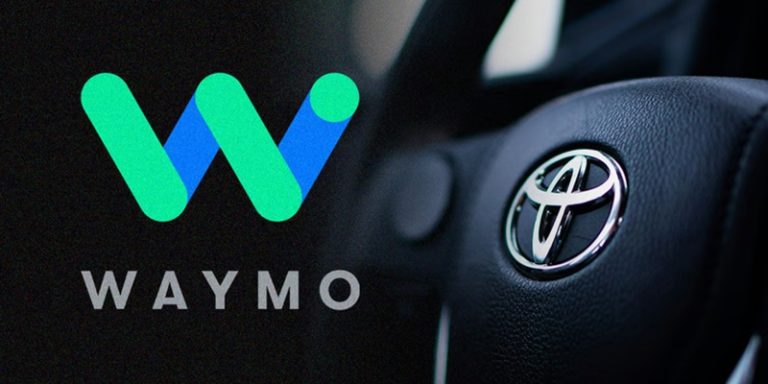
Alphabet-owned Waymo and Japanese auto giant Toyota have entered into a preliminary partnership to explore a new frontier in autonomous driving: personally owned self-driving vehicles.
The alliance marks a potential strategic pivot away from the robotaxi-only playbook, hinting at a future where private consumers may soon own cars embedded with Waymo’s advanced driverless technology.
But beyond the immediate tech implications, the announcement has ignited debate on Wall Street and in the auto-tech sector, with some analysts now openly asking: Does Tesla finally have a real threat in the race for autonomous dominance?
Register for Tekedia Mini-MBA edition 19 (Feb 9 – May 2, 2026).
Register for Tekedia AI in Business Masterclass.
Join Tekedia Capital Syndicate and co-invest in great global startups.
Register for Tekedia AI Lab.
Announced Tuesday, the collaboration between Waymo and Toyota aims to “leverage Waymo’s autonomous technology and Toyota’s vehicle expertise to enhance next-generation personally owned vehicles,” according to a joint statement. Though early in its formulation, the partnership hints at Toyota vehicles potentially being integrated into Waymo’s growing ride-hailing fleet, which has already been rolled out in Phoenix, San Francisco, Los Angeles, and most recently Austin.
Waymo’s co-CEO Tekedra Mawakana said the partnership could accelerate both companies’ ambitions in next-gen mobility. The idea isn’t just to fine-tune driver-assistance systems, but to potentially create fully autonomous vehicles that consumers can own — a concept once thought to be years away.
Analysts Divided: Is This Tesla’s Competition?
The announcement has not gone unnoticed on Wall Street, where opinions on its significance diverge sharply. Morgan Stanley, in a note to investors, said the Waymo–Toyota tie-up is a “major milestone” and represents “legit competition” for Tesla, which has long dominated the narrative around autonomous driving. The firm sees the partnership as a strategic alignment that brings together Google’s world-leading AI and mapping infrastructure with Toyota’s production scale and reliability.
But not everyone is buying into the buzz. Dan Ives, a tech analyst with Wedbush Securities and a long-time Tesla bull, downplayed the significance of the announcement.
“I disagree that the Waymo/Toyota is a groundbreaking deal and a threat to Tesla,” Ives said. “Tesla will own the autonomous market in my view, and no one can compete with their scale and scope. It starts in Austin in June, then the autonomous journey begins. Key chapter of growth.”
Tesla CEO Elon Musk has also been characteristically dismissive, suggesting in a recent earnings call that Waymo’s robotaxis are too expensive to be produced at scale, and reaffirming Tesla’s commitment to launching a fully autonomous ride-hailing service using its Model Y vehicles with the new “unsupervised” Full Self-Driving (FSD) software starting June in Austin.
Waymo Has the Lead — At Least for Now
However, by several measures, Waymo already has the upper hand when it comes to real-world deployment. The company is now delivering over 250,000 paid robotaxi rides per week, up from 200,000 in February. Its Waymo One service is active in four major metro areas — including Phoenix, San Francisco, Los Angeles, and Austin — with no human driver behind the wheel.
By contrast, Tesla’s so-called Full Self-Driving software, despite its name, still requires driver supervision and has yet to be validated as safe for fully autonomous operation. Regulatory agencies in the U.S. have investigated multiple incidents involving Tesla’s FSD and Autopilot features, further slowing Tesla’s path toward regulatory approval for a commercial driverless ride-hailing service.
Even Alphabet CEO Sundar Pichai acknowledged last week during Q1 earnings that Waymo has not finalized its long-term business model but emphasized the “optionality around personal ownership” as a promising revenue path. The Waymo–Toyota partnership appears to be a concrete step in that direction — potentially combining the tech know-how of Silicon Valley with the production might of Japan’s top automaker.
Not Waymo’s First Partnership — But Possibly the Most Significant
Waymo has previously collaborated with automakers including Jaguar Land Rover, Stellantis, Mercedes-Benz, Hyundai, and China’s Geely, often resulting in vehicles tailored for Waymo’s testing or ride-hailing fleets. However, those efforts largely remained limited in scale.
This Toyota deal may be different. Toyota is not only the world’s largest automaker by sales, but also a leader in hybrid and electrification platforms — a crucial advantage for developing energy-efficient autonomous systems. And unlike smaller OEMs, Toyota has the capacity to scale production globally if the partnership matures beyond testing.
Waymo said its collaboration with Toyota would not interfere with existing partnerships involving Hyundai and Geely for its Waymo One service. But industry insiders note that this tie-up could eventually open the door to mass-market personal AVs — a holy grail the industry has long chased but never achieved.
A Broader Shift in Industry Focus
Waymo and Toyota’s announcement also echoes a broader shift across the auto industry. Last year, General Motors paused its Cruise robotaxi operations after a series of safety concerns, refocusing instead on building self-driving systems for personal-use vehicles. Ford and Volkswagen similarly scaled back their investments in Argo AI, citing the difficulty of commercializing robotaxis at scale.
Meanwhile, Tesla remains an outlier, pursuing a vertically integrated approach and relying on camera-based systems, rather than the lidar and radar technologies used by Waymo and others. Musk has dismissed lidar as “unnecessary,” though Tesla’s software hasn’t proven itself in complex urban driving environments without human intervention.
It’s still unclear whether the Waymo–Toyota partnership will yield a commercially available autonomous personal vehicle. But if it does, it would mark a seismic shift — both in consumer mobility and in Tesla’s grip on the autonomous narrative.



